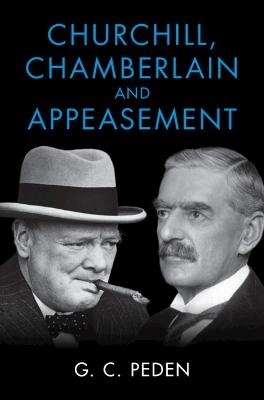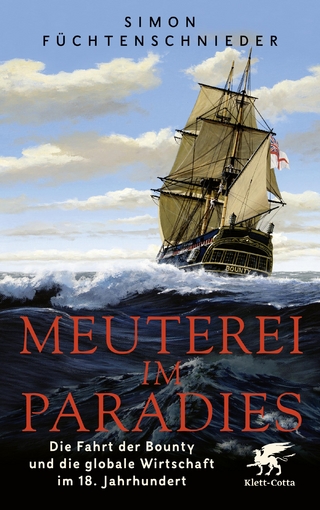
Churchill, Chamberlain and Appeasement
Seiten
2022
Cambridge University Press (Verlag)
978-1-009-20198-8 (ISBN)
Cambridge University Press (Verlag)
978-1-009-20198-8 (ISBN)
A major new account of appeasement and the question of whether the Second World War could have been prevented. G. C. Peden provides a comparative analysis of Chamberlain and Churchill's view on foreign policy, how best to deter Germany and explores what deterrence and appeasement meant in the context of the 1930s.
Was Churchill correct when he claimed the Second World War could easily have been prevented if Chamberlain had not appeased Hitler? How far did Churchill and Chamberlain differ on defence and foreign policy? To what extent was Chamberlain responsible for military defeats in 1940? In this new account of appeasement, G. C. Peden addresses these questions and provides a comparative analysis of Chamberlain and Churchill's views on foreign policy and strategic priorities, explores what deterrence and appeasement meant in the military, economic and political context of the 1930s and where Chamberlain and Churchill agreed and disagreed on how best to deter Germany. Beginning in 1931 when Chamberlain became Chancellor of the Exchequer, this book explores the evolution of British policy towards Germany through to the Munich Agreement and its aftermath within the context of Britain's power to influence international affairs in the 1930s and of contemporary intelligence.
Was Churchill correct when he claimed the Second World War could easily have been prevented if Chamberlain had not appeased Hitler? How far did Churchill and Chamberlain differ on defence and foreign policy? To what extent was Chamberlain responsible for military defeats in 1940? In this new account of appeasement, G. C. Peden addresses these questions and provides a comparative analysis of Chamberlain and Churchill's views on foreign policy and strategic priorities, explores what deterrence and appeasement meant in the military, economic and political context of the 1930s and where Chamberlain and Churchill agreed and disagreed on how best to deter Germany. Beginning in 1931 when Chamberlain became Chancellor of the Exchequer, this book explores the evolution of British policy towards Germany through to the Munich Agreement and its aftermath within the context of Britain's power to influence international affairs in the 1930s and of contemporary intelligence.
G. C. Peden is Emeritus Professor of Stirling University. His previous publications include Arms, Economics and British Strategy: From Dreadnoughts to Hydrogen Bombs (2007), The Treasury and British Public Policy, 1906-1959 (2000) and British Rearmament and the Treasury, 1932-1939 (1979). He is a Fellow of Scotland's national academy, the Royal Society of Edinburgh.
Introduction; 1. Churchill, Chamberlain and historians; 2. Personalities and policymaking; 3. Britain and the balance of power; 4. The darkening scene; 5. The Ethiopian and Rhineland crises ; 6. Chamberlain takes charge; 7. From the Anschluss to Munich; 8. From Munich to Prague; 9. Deterrence by guarantee; 10. The test of war; 11. Counterfactuals and conclusions.
| Erscheinungsdatum | 01.11.2021 |
|---|---|
| Zusatzinfo | Worked examples or Exercises |
| Verlagsort | Cambridge |
| Sprache | englisch |
| Maße | 159 x 236 mm |
| Gewicht | 750 g |
| Themenwelt | Geschichte ► Allgemeine Geschichte ► Neuzeit (bis 1918) |
| Geschichte ► Allgemeine Geschichte ► 1918 bis 1945 | |
| Geisteswissenschaften ► Geschichte ► Regional- / Ländergeschichte | |
| Geschichte ► Teilgebiete der Geschichte ► Militärgeschichte | |
| ISBN-10 | 1-009-20198-0 / 1009201980 |
| ISBN-13 | 978-1-009-20198-8 / 9781009201988 |
| Zustand | Neuware |
| Haben Sie eine Frage zum Produkt? |
Mehr entdecken
aus dem Bereich
aus dem Bereich
Giordano Bruno - ein ketzerisches Leben
Buch | Hardcover (2024)
C.H.Beck (Verlag)
29,90 €
die Fahrt der Bounty und die globale Wirtschaft im 18. Jahrhundert
Buch | Hardcover (2024)
Klett-Cotta (Verlag)
25,00 €


